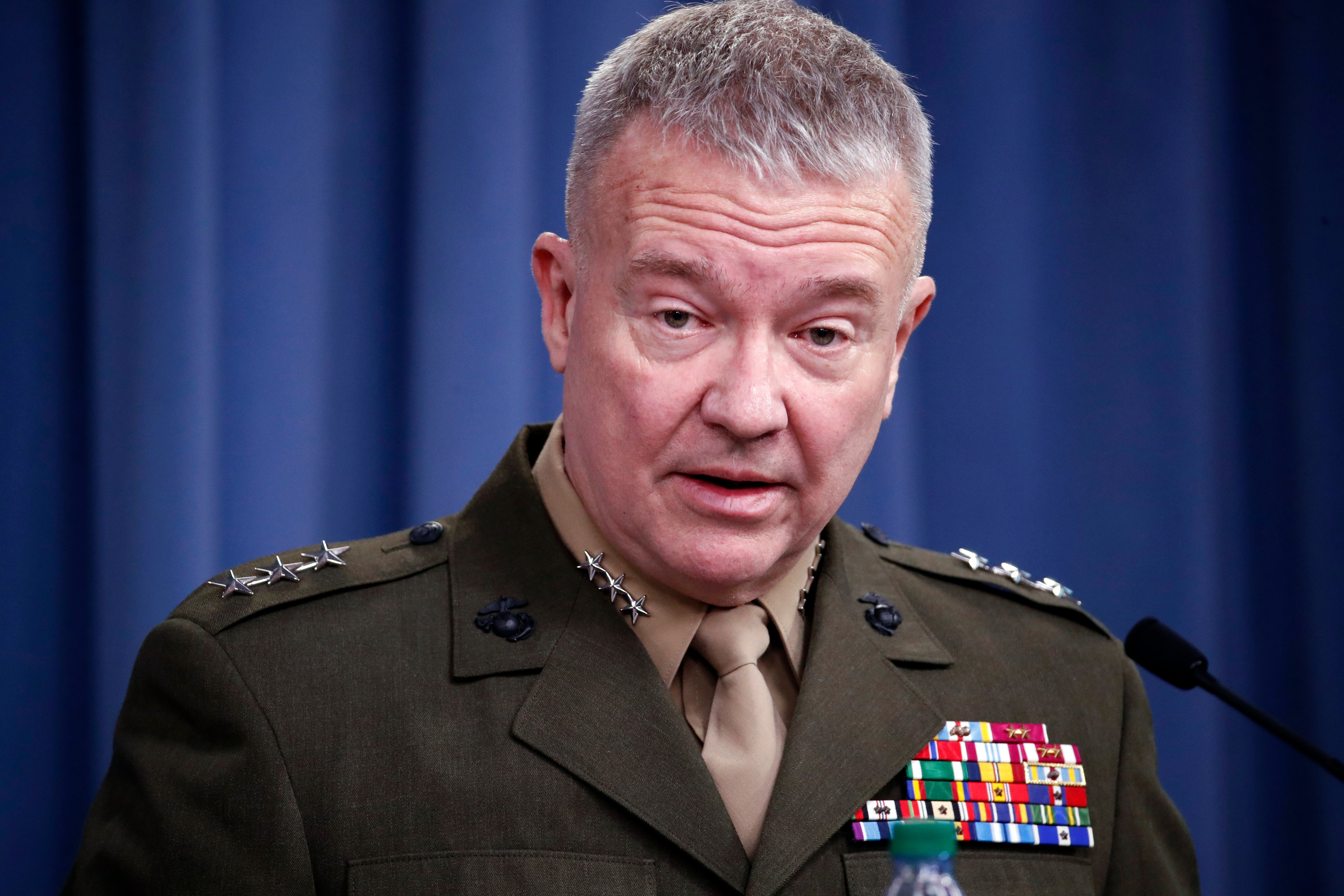General: Afghan military will collapse without some US help
The top U.S. general in the Middle East tells Congress that Afghanistan’s military “will certainly collapse” without some type of continued American support once all U.S. troops are withdrawn

Afghanista ’s military “will certainly collapse” without some continued American support once all U.S. troops are withdrawn, the top U.S. general for the Middle East told Congress Thursday. Gen. Frank McKenzie also said he was very concerned about the Afghan government’s ability to protect the U.S. Embassy in Kabul.
McKenzie, head of U.S. Central Command, said that as the U.S. pulls out all forces, “my concern is the Afghans' ability to hold ground” and whether they will able to continue to maintain and fly their aircraft without U.S. aid and financial support. He said it will be paramount to protect the U.S. Embassy and “it is a matter of great concern to me whether or not the future government of Afghanistan will be able to do that once we leave.”
McKenzie has spent the week detailing to lawmakers the steep challenges facing the U.S. military as it moves to withdraw all troops from Afghanistan by Sept. 11, as ordered by President Joe Biden last week. Walking a careful line, the general has painted a dire picture of the road ahead, while also avoiding any pushback on Biden's decision.
U.S. officials have made it clear that military commanders did not recommend the full, unconditional withdrawal that Biden has ordered. Military leaders have consistently argued for a drawdown based on security conditions in the country, saying that pulling troops out by a certain date eliminates pressure on the Taliban and weakens U.S. leverage in the peace talks with the group.
Still, McKenzie said the Biden administration's “deliberate and methodical” withdrawal discussion “was heartening,” implicitly drawing a contrast with former President Donald Trump's penchant for making abrupt troop withdrawal decisions and announcing them by tweet.
In public and private sessions with lawmakers, McKenzie has been pressed about how the U.S. will maintain pressure on the Taliban and prevent terrorist groups from taking hold in Afghanistan again once the United States and its coalition partners leave. The U.S. has more than 2,500 troops in the country; the NATO coalition has said it will follow the same timetable for withdrawing the more than 7,000 allied forces.
He told the Senate Armed Service Committee on Thursday that once troops leave the country, it will take “considerably longer” than four hours to move armed drones or other aircraft in and out of Afghanistan to provide overhead surveillance or counterterrorism strikes. He said it will require far more aircraft than he is using now.
Defense Secretary Lloyd Austin, speaking at NATO earlier this month, said the U.S. will continue to support the Afghans after the withdrawal. He said “we will look to continue funding key capabilities such as the Afghan Air Force and Special Mission Wing, and we will seek to continue paying salaries for Afghan Security Forces.”
Austin and others have said the U.S. will maintain the ability to counter terrorists in Afghanistan, but there are few details, and officials say they have not yet gotten any diplomatic agreements for basing with any of the surrounding nations.
McKenzie has declined to provide details during the public sessions.
He said there are no decisions yet on what size of diplomatic contingent will be left at the U.S. Embassy in the Afghan capital, and whether it will include a security cooperation office. Those decisions, he said, could reflect how the U.S. ensures the defense of the embassy. Marines often provide security at other embassies around the world.
Senators voiced divided views on the withdrawal, with comments crossing party lines. Several lawmakers questioned whether the U.S. will be able to prevent the Taliban from allowing a resurgence of terrorist groups in Afghanistan who are seeking to attack America. Others asked if the U.S. will be able to adequately account for how the Afghan government spends any American money.
Sen. Jeanne Shaheen, D-N.H. said there are concerns that a U.S. withdrawal will create a vacuum in the country that China, Russian or Iran will fill. But Sen. Elizabeth Warren, D-Mass., argued that the U.S. presence in Afghanistan over the past 10 years has not led to much improvement. She said the government is still corrupt and the Taliban control a larger portion of the country than it did before.
The Pentagon has said it’s not clear yet whether any U.S. contractors will remain in the country. The Defense Department says the number of contractors in Afghanistan started to decline over the past year or so. According to the latest numbers, there are close to 17,000 Defense Department-funded contractors in Afghanistan and less than one-third of those were Americans.
The total included more than 2,800 armed and unarmed private security contractors, of which more than 1,500 are armed. Of those 1,500, about 600 are Americans.
___ AP National Security correspondent Robert Burns contributed to this report.
Bookmark popover
Removed from bookmarks